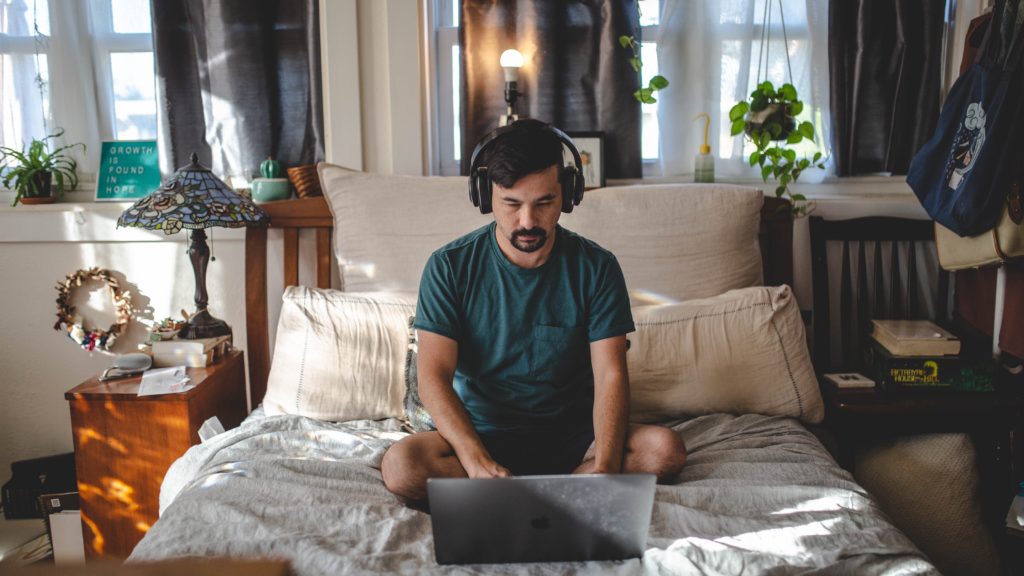People working remotely is not a new concept, however, the global pandemic of Covid-19 has meant that a large proportion of the nation has worked from home over the past 10 months, as advised by government guidelines, to increase our social distancing and cut the risk of transmission.
As we hurtle into further lockdown regulations, those who may have returned to the workplace may find themselves back working at home. It’s a timely reminder that we need to keep boundaries in place and stick to a regular routine so that it doesn’t impact too heavily on your sleep. Disruptions to your normal day to day routine can have a knock-on effect on so safeguard your sleep with the following tips:
- It is important to keep a regular daily routine to keep you mentally focused and your body clock in sync – our sleep/wake schedule is controlled by our body clocks and environmental cues. Don’t be tempted to hit snooze just because you don’t have to physically go to work. Make sure you get showered, dressed and have a balanced breakfast like you would for a normal ‘workday’.
- Before you start work or a mid-morning break, get some natural light – whether that’s a brisk walk or 10 minutes sat in the garden with a morning cuppa. Natural light, which can still be effective on a cloudy or grey day, helps reset our internal body clock. It helps us get over feeling groggy when we have just woken up and makes us more alert.
- Put boundaries in place. While there is flexibility in working from home, make sure you stick to your work hours as much as possible. Don’t be tempted to ‘be available at all times. Checking emails or even working too close to bedtime could see you having trouble falling asleep or staying asleep.
- Have a designated area for working and where possible commit to using it only during work hours. And not in the bedroom, which should be used only for sleep and sex. Working from your bed may seem appealing but it’s no good for your posture or productivity.
- Take regular breaks. At home, you may find (with no other distractions) that you work solidly for longer so take the opportunity every hour to stretch your legs and get a change of scenery.
- Working from home can be surprisingly hard on your mental health, which in turn can affect your sleep. You may miss the banter of the factory floor or the ability to bounce ideas off each in the office. Luckily there are many platforms for people to stay connected – Microsoft Teams and Zoom – where you can see and speak to colleagues.
- Keep hydrated. Without colleagues to do a ‘coffee round’ make sure you regularly have a drink. Keep a bottle of water on your desk and use tea making time to have a break from the computer screen.
- Avoid fuelling up on caffeine in the afternoon when you hit the post-lunch dip. Although there are significant individual differences in how caffeine affects each of us, give yourself enough time between your last caffeine intake and your sleep time to make sure that it does not interfere with your ability to get off to sleep. If you’re feeling lethargic in the afternoon, spend 10 minutes outside or put one of your favourite songs on to lift your mood.
Remember when you don’t sleep well, your work performance is affected.


